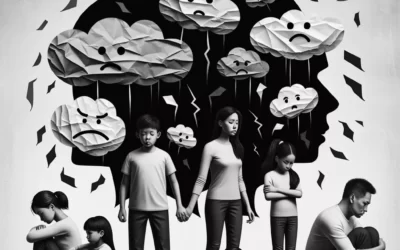Mental Abuse
Exploring the Devastating Effects of Mental Abuse on Married Couples
In this eye-opening article, we take a closer look at the powerful and often unseen impact of...
Understanding the Impact of Mental Abuse on Children and Family Dynamics
Imagine a world where every child grows up in a nurturing environment, free from any form of...
What Are the Signs of Mental Abuse in a Marriage?
In a marriage, it is crucial to be attentive to the signs of mental abuse, as it can be a deeply...
Exploring the Devastating Effects of Mental Abuse on Married Couples
Explore the devastating effects of mental abuse on married couples. Learn about the long-term consequences, communication breakdown, damaged intimacy, financial impact, parenting challenges, and social isolation. Gain a deeper understanding and awareness of this crucial topic.
Understanding the Impact of Mental Abuse on Children and Family Dynamics
Understand the effects of mental abuse on children and family dynamics. Learn the signs, provide support, seek help, and break the cycle for a healthier future.
What Are the Signs of Mental Abuse in a Marriage?
Discover the signs of mental abuse in a marriage to protect your emotional well-being. Learn how to recognize and address this damaging issue.
Mental abuse, also known as psychological abuse, involves a range of behaviors that affect an individual’s psychological well-being and mental health.
Gaslighting: Manipulating someone into doubting their memories, feelings, or perceptions.
Isolation: Cutting someone off from friends, family, or other support systems.
Emotional Blackmail: Using guilt, fear, or obligation to manipulate or control.
Degradation: Insulting, belittling, or demeaning someone to reduce their self-worth.
Manipulative Punishments: Withholding affection, silent treatments, or other punitive behaviors to control.
Ambient Abuse: Creating an environment of fear, hostility, or uncertainty.
Mind Games: Manipulating someone’s emotions or perceptions for personal gain or pleasure.
Enforced Dependency: Making someone reliant or dependent, often by undermining their confidence or capabilities.
Threats and Intimidation: Using explicit or implicit threats to manipulate or control.
Invalidation: Systematically rejecting, ignoring, or belittling someone’s feelings or experiences.
Parental Alienation: Manipulating a child’s perception to turn them against the other parent.
Exploitation: Taking advantage of someone’s vulnerabilities for personal gain.
Projecting Blame: Shifting responsibility for abusive behaviors onto the victim.
Mental Abuse in Relationships: Patterns of control, manipulation, and degradation between partners.
Psychological Bullying: Using words and actions to intimidate or undermine someone mentally.
Financial Control: Manipulating someone using financial resources or obligations.
Stalking and Obsession: Creating a sense of perpetual surveillance or invasion of privacy.
Identity Diminishment: Attacking or undermining someone’s personal, cultural, or social identity.
Reality Distortion: Deliberately warping the perception of reality to disorient the victim.
Mental Abuse in Cults: Brainwashing, thought control, and the creation of a dependent relationship on the group or leader.
Manipulation through Falsehoods: Lying or fabricating scenarios to control or manipulate.
Chronic Criticism: Persistent and unnecessary criticism aimed to erode self-esteem.
Humiliation: Deliberately making someone feel ashamed or embarrassed.
Mental Abuse in Digital Spaces: Online harassment, cyberbullying, and digital manipulation tactics.
Effects and Recovery from Mental Abuse: Understanding the long-term impacts and healing processes following psychological trauma.
If someone believes they are experiencing mental abuse, it’s crucial to seek support from professionals, friends, or trusted family members. Mental abuse can have lasting psychological impacts, and early intervention can be beneficial.


